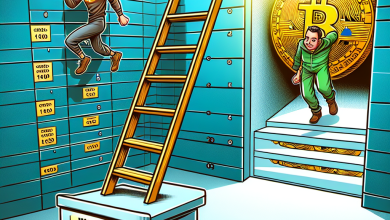Building permits collapse: The situation on the housing market is becoming increasingly dramatic
The situation on the housing market, which is tense in many places, threatens to deteriorate further. After a slump in building permits in March, the construction industry association fears a “residential construction recession”. “The rental market has frozen, too few apartments are being built for the strong demand,” he said
Chief Executive of the Main Association of the German Construction Industry Tim-Oliver Müller on Wednesday. This affects construction companies, but also thousands of tenants.
Despite the demand for housing, the number of permits has been falling since last year. According to the Federal Statistical Office, the pace accelerated in March. Accordingly, the authorities approved the construction of 24,500 apartments. That was a minus of 29.6 percent compared to the same month of the previous year and the strongest decline since March 2007 (minus 46.5 percent). In the first three months of the current year, a total of 68,700 building permits for apartments were issued, 25.7 percent fewer than in the same period last year.
Rethinking of funding policy required
Because of the sharp rise in interest rates on loans and high construction prices, many builders are holding back on projects or canceling them – from private house builders to large investors. In addition, the industry criticizes over-regulation and uncertainty among potential builders, for example due to the planned building energy law, with which the traffic light government wants to herald the long-term farewell to oil and gas heating. “Politicians have to make a decision: do they want to regulate themselves in detail or build apartments efficiently?” said Müller. The general manager of the Central Association of the German Construction Industry, Felix Pakleppa, warned: “Without rethinking the subsidy policy, housing construction will crash. We will be missing the urgently needed apartments for many years to come.”
The biggest financing traps for real estate buyers
Anyone who overestimates their financial limit for interest and repayment jeopardizes the entire financing. The monthly installments should not exceed one third of the income. After all, everyday life goes on for real estate owners too. Unforeseen expenses, such as a major car repair, must remain affordable without any problems. Reserves of three to six months’ salary are recommended for this.
Source: Bausparkasse Schwäbisch-Hall, own research
Status: 2022
Builders should calculate exactly whether they can handle at least two or better three percent repayment per month. Another point of reference for the bill: The property should be paid off by the time you retire at the latest. Although interest rates have risen recently, the interest premiums for long loan terms of 20 or even 30 years are not particularly high. A fixed interest rate that is as long as possible makes sense and protects against a further rise in interest rates.
The more equity that is brought into the financing, the less money the borrower has to borrow. As a rule of thumb, buyers should be able to cover at least 20 percent of the total costs (construction, purchase and ancillary purchase costs) from their own funds. Anyone who underestimates the need for credit may have to accept expensive follow-up financing. If, on the other hand, the required sum is set too high, banks demand compensation for non-acceptance.
Banks are reluctant to help finance them: the total ancillary costs from real estate transfer tax, notary and land registry fees and possible brokerage commissions can add up to up to 15 percent of the purchase price. If you want to finance a property worth 300,000 euros, you should already have saved 45,000 euros for the additional costs.
Credit from Riester contracts, loans from the public sector, such as loans from the KfW bank, or building money from the mayor can reduce the need for credit. Additional grants may also be available. Anyone who does not use the Wohn-Riester subsidy, which is particularly lucrative for families with children, or the building child allowance for financing is sometimes giving away a five-digit sum. Oberländer’s tip: “Buyers should inquire about allowances and subsidies in advance.”
The construction industry association recently reckoned with at best 250,000 completions in the current year – far away from the former goal of the federal government of 400,000 new apartments per year. The pressure on rents is therefore likely to remain high. “People who can no longer buy because of the jump in interest rates must continue to live somewhere,” said Stephan Kippes, market researcher at the real estate association Germany South recently. The presumed consequence of the slump in construction activity and the rise in interest rates: “The supply will become even tighter and rents will rise,” Kippes expects.
The Confederation of German Trade Unions (DGB) demanded that the public sector go on the offensive if the private sector did not build. “We need a massive increase in funds for social housing and an investment fund that the federal government can use to strengthen the equity base of municipal and state-owned housing companies,” said Stefan Körzell, DGB board member.
According to the Wiesbaden authorities, a total of 57,700 apartments were approved for new residential buildings from January to March 2023, a decrease of 28.4 percent. The number of permits for single-family houses fell by 31.1 percent, for apartments in two-family houses by as much as 51.9 percent. In the numerically strongest type of building, multi-family houses, the number of approved apartments fell by 25.2 percent.
Also read, How owners should react when tenants stop paying




